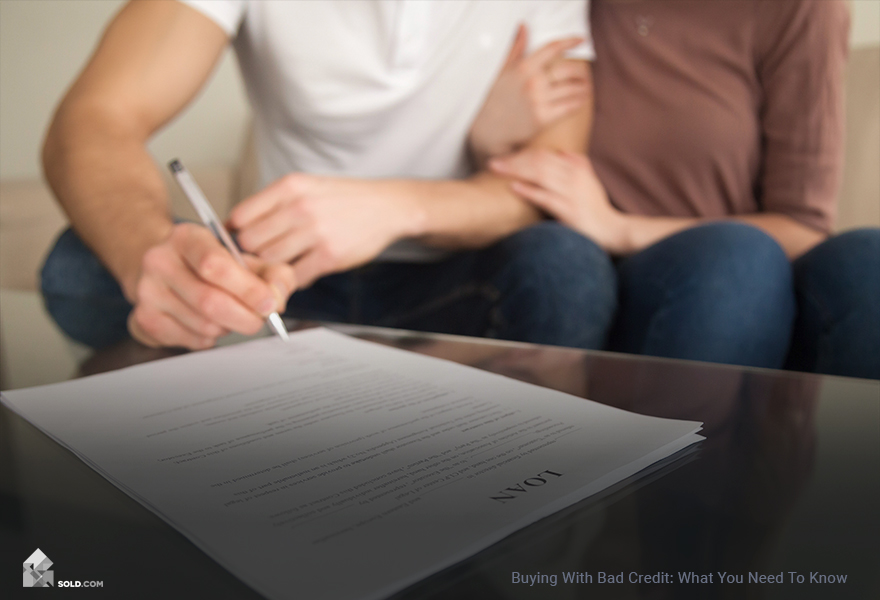
Buying a House with Bad Credit
Buying a home is one of the most significant financial decisions you will ever make. We all want to go into this process as well-prepared as possible, but what happens when your credit is less than ideal?
Get The Full Picture
Start with the numbers. The first thing you need to do is get your credit score to see exactly what you’re dealing with. This will not only give you a sense of how lenders may view you as a credit risk but will help you better understand how you can continue to improve your financial profile in the future.
You can get your free credit score at Annual Credit Report, where you can pull your numbers from the three major credit bureaus. Be sure to reality-check other sites that make the same offer, as many charges a subscription fee for the privilege.
Now is also the time to look into strategies for removing negative credit entries on your report. Some of these may be disputed due to their age (most negative entries fall off after seven years) and others due to error. In any event, it’s worth taking a serious look at your reports once you receive them.
Know Your Compensating Factors
If you’ve got bad credit, it’s not the end of the world so long as you have other factors that will help balance it out. Lenders want to know that you are able to responsibly take on debt and pay it back as promised.
Consult the Federal Housing Authority (FHA) for the latest guidelines on compensating factors that lenders may believe balance out bad credit. The specific guidelines change over time.
Compensating factors include a large down payment (10% or higher), high income, significant amount of cash reserves, long-term employment with the same organization, low debt-to-income ratio, and no outstanding debt.
Understand Your Options
Once you understand your financial picture, it’s time to start figuring out which financing alternative may work best for your individual situation. A few things to consider here: the amount of your down payment, your time frame for paying off the loan, and your tolerance for borrowing from those close to you.
Get everything in writing. Should an agreement go sour in the future, you want to be able to prove what was detailed in the original arrangement. A signed contract is that proof.
Many homebuyers with bad credit turn to family members and friends to support their purchase. Also known as private loans, these agreements can be extremely helpful but potentially controversial if things go poorly down the road. According to legal publisher Nolo Press, this type of loan doesn’t have to differ too much from a traditional one if the proper paperwork is signed. Such agreements will include a repayment schedule that includes interest as well as a lender-held lien on your property.
As the buyer, a private loan can be helpful by providing a lower interest rate, federal tax deductions, and more flexibility in repayment terms. The lender also benefits from a strong rate of return on their investment as well as a predictable income stream.
Seller financing is also another possibility here. This takes place when some or all of the purchase price, excluding the down payment, is financed by the seller in any one of multiple ways. In this instance, the buyer and seller form an agreement with loan payment terms along with a mutually acceptable interest rate, with the buyer footing the bill for the seller’s equity as well.
Seller financing can take many different forms, including promissory notes and mortgages (in which the seller carries the mortgage for all but the down payment), land contracts (where the buyer does not get legal title, but rather equitable title), and lease purchase agreements (where the buyer leases the property and gets equitable title).
You may also benefit from FHA low credit score mortgages. As of last year, the FHA required a credit score of 500 or above, with a minimum of 580 to make a 3.5% minimum down payment. That said, many lenders look for a score of at least 620 in order for an applicant to qualify. For more information, read Do You Qualify For An FHA Loan?
If you are buying a house with bad credit and you find yourself in the position of needing alternative financing in order to be able to afford your home purchase, talk to your agent. They will be able to offer you specific insight into your individual situation.

